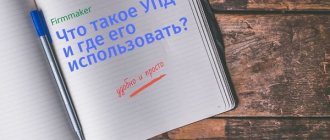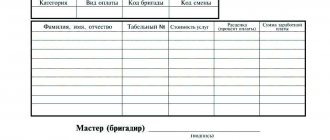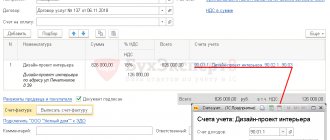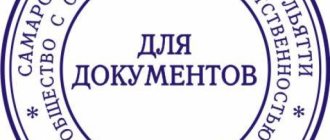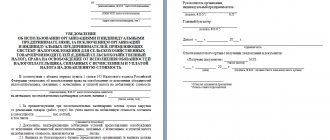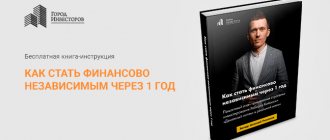Home / Taxes / What is VAT and when does it increase to 20 percent? / VAT object
Back
Published: December 28, 2017
Reading time: 6 min
0
830
Along with food products, vehicles, furniture, clothing, printing and other goods, medical products and services in Russia are subject to VAT on a general basis.
- VAT on goods and services in the amount of 10%: basis for calculation
- In what cases does 18% VAT apply?
- VAT exemption: when possible
- What legal documents govern the sale of goods and services?
According to the Tax Code, VAT on the sale of medical drugs and services can be calculated using a rate of 10% VAT, in some cases - 18%, and sometimes no product tax is paid at all.
Master List
By law, medical services for prevention, diagnosis and treatment that are provided to the population are exempt from value added tax:
- medical organizations;
- businessmen conducting medical activities.
Moreover, the VAT exemption for medical services does not depend on:
- on the form of payment by the patient;
- source of their payment.
At the same time, having a medical license is mandatory.
There is a basic List of such medical services, which was approved by Decree of the Government of the Russian Federation dated February 20, 2001 No. 132 and is of an extremely general nature. According to it, the following services are tax free:
1. For diagnosis, prevention and treatment directly provided to the population on an outpatient basis in a clinic (including pre-medical care), including a medical examination.
2. For diagnosis, prevention and treatment directly provided to the population in a hospital, including medical examination.
3. For diagnosis, prevention and treatment, directly provided to the population in day hospitals and by the services of general (family) doctors, including medical examinations.
4. For diagnosis, prevention and treatment, directly provided to the population in sanatorium and resort institutions.
5. On health education, directly provided to the population.
Practice shows that using this List of the Government of the Russian Federation for tax purposes is extremely inconvenient and risky.
Conditions for applying preferential rates
Registration certificate. To apply a 0% or 10% preferential rate, the taxpayer must have a registration certificate for medical products or equipment. If there is no registration certificate with the code or it is expired, the right to a preferential rate is lost, and VAT will have to be paid at a rate of 20% (letters of the Ministry of Finance of Russia dated September 13, 2018 No. 03-09-19/65511, dated January 24, 2018 No. 03-07- 07/3560).
Compliance with codes. The registration certificate of a medical product must contain a code. Goods produced in Russia have a code from the All-Russian Classification of Products (OKPD 2), and imported goods have a code from the Commodity Nomenclature of Foreign Economic Activity of the Eurasian Economic Union (TN VED EAEU).
To be exempt from VAT, the code according to the Commodity Code for Foreign Economic Activity of the EAEU or OKPD 2 in the registration certificate of a medical product must match the code from the list in Government Decree No. 1042 or in Decree No. 688. If the company cannot provide such a registration certificate, it will have to pay VAT at a rate of 20%.
Be careful, ask suppliers for registration certificates for medical products in order to apply preferential rates, and monitor the statute of limitations on these certificates. Carefully check the code in the registration certificate and the code in List No. 1042 or List No. 688. During audits, the tax office requests registration certificates and checks codes to ensure your right to a preferential rate. If the codes do not match or the certificate has expired, you will be charged additional VAT and may be fined.
Keep records in the cloud service Kontur.Accounting and optimize VAT in legal ways. The system will tell you how you can reduce your tax and what you need to do to achieve this. The service includes simple accounting, payroll, reporting and other tools for managers and accountants. The first two weeks are free for all new users.
Additional lists
According to the Ministry of Finance, in order to understand in detail which medical services are not subject to VAT, you can and should refer to the following by-laws:
- List of works (services) that constitute medical activities (Appendix to the Decree of the Government of the Russian Federation of April 16, 2012 No. 291 “On licensing of medical activities” (contains about 150 items);
- in general, the Regulations on licensing of medical activities;
- Requirements for the organization and performance of work (services) in the provision of primary health care, specialized (including high-tech), emergency (including specialized emergency), palliative medical care, provision of medical care during sanatorium-resort treatment, during medical examinations, medical examinations, medical examinations and sanitary and anti-epidemic (preventive) measures as part of the provision of medical care, during transplantation of organs and (or) tissues, circulation of donor blood and (or) its components for medical purposes (approved by order of the Ministry of Health dated March 11, 2013 No. 121n);
- The nomenclature of medical services is a systematic list of codes and names of medical services in healthcare (approved by order of the Ministry of Health dated October 13, 2017 No. 804n).
Also see “Instructions: how a medical worker can obtain the title “Veteran of Labor.”
Read also
21.07.2018
In what cases does 18% VAT apply?
If a company sells one or another medical product, the codes of which are not included in the categories of goods with a reduced VAT rate of 10%, taxes on them are calculated at a percentage rate of 18%.
This provision is regulated by Article 164 of the Tax Code of the Russian Federation, as well as Letter of the Ministry of Finance of the Russian Federation dated June 27, 2017 No. 03-07-07/40295. Thus, companies selling the following categories of products will pay 18% VAT:
- medical raw materials and substances that are not medicinal substances;
- therapeutic food products and dietary supplements;
- disinfectant preparations;
- veterinary products;
- cosmetics and perfumes.
What services and transactions are not subject to value added tax?
Value added tax is imposed on a wide range of transactions and services, but there is also a list of those that are not subject to this tax.
The possibility of refusing to pay VAT is associated with social expediency - it is on this basis that the exemption from payment is formed.
Minimization or the possibility of refusing payments are relevant as support measures for start-up businesses, for domestic manufacturers in general, competing with foreign suppliers.
Attention! If you have any questions, you can chat for free with a lawyer at the bottom of the screen or call Moscow; Saint Petersburg; Free call for all of Russia.
Medicine, education and other socially significant areas are also exempt from payments, which is quite natural.
Normative base
Within the framework of VAT legislation, Art. 149 of the Tax Code of the Russian Federation, which provides not only basic explanations, but also regulates the list of services and areas that are exempt from payments. This list is indicated in paragraph 3 of Art. 149 of the Tax Code of the Russian Federation, after reading it, the taxpayer can clarify whether there is a need to pay tax in his case.
What is VAT?
VAT is an indirect tax that is levied on both goods and services. It is calculated as an additional cost, paid from the cost of the service or operation by the end consumer in favor of the country's budget. The peculiarity of this tax is the fact that tax receipt is possible even at the production stages.
If we talk about services, it is formed from those operations that are provided in the process of producing the final result, remaining relevant at all stages.
The basic rate for VAT is 18 percent, and Russian legislation also provides for the possibility of using a reduced rate of 10 percent, or a zero rate, as well as a complete exemption.
VAT has some similarities with turnover or sales tax and is also added to the total cost of the service. However, there are significant differences in this regard. Thus, the seller of services for which the buyer pays VAT included in the total price can deduct from the amount paid by the buyer those figures that were paid the same tax to the supplier.
https://www.youtube.com/watch?v=jNWAI0s5fTM
The tax remains indirect; it is paid by the buyer. Payment papers require separate registration of VAT on services and transactions; a special line is allocated for this. In general, this version of the tax system is formed to achieve several goals at once:
- Distribution of the tax payment process between the stages of production and commerce, while eliminating the risk of multiple collections and overpayments, which can become very serious.
- Distribution of responsibilities between several payers, eliminating the risk of non-payment. The specifics of taxation in this regard are such that the required amount will still be withdrawn for the budget, even if one of the participants in the process evades taxes. Care is possible only when using the most complex schemes.
- Receiving an indirect tax excludes national ones; this is convenient within the current economic situation.
What services are subject to VAT?
VAT is levied on a wide range of services provided on the territory of the Russian Federation, and this issue is regulated by Chapter No. 21 of the Tax Code of the Russian Federation. Almost all services are taxable, however, there is a list of exceptions approved by law in accordance with Articles No. 145, No. 149 and No. 150 of the Tax Code of the Russian Federation. Among the exceptions that are not subject to the fee, it should be noted:
- Licensed medical services except veterinary and cosmetology, not sponsored by the budget.
- Child care in specialized preschool institutions.
- Sections and clubs for children.
- Care for the elderly and disabled.
- Collection of duties and fees, related services.
- Funeral services.
- Renting premises to foreigners.
- Working with deposits and securities.
- Maintenance of vessels - river, sea, air.
- Non-profit services in the spheres of culture and art.
- Pharmacy services - manufacturing medicines, frames, repairing hearing aids, and so on.
- Transportation of people subject to a single tariff.
- Extinguishing fires in forests.
- Lawyer services.
- Guaranteed repair services at no additional charge.
What transactions are subject to VAT?
Regarding transactions, the situation is similar - almost all of them require payment of VAT, but there is a list of exceptions that are not subject to additional taxes. Exceptions established by law are worth listing. Thus, the following transactions are not subject to tax:
- Licensed banking activities except for collection, loans other than in kind (through the use of goods), operations with stones and precious metals.
- Transfer of infrastructure facilities to self-government bodies and authorities.
- Privatization of enterprises.
- Insurance, provision of pensioners of a non-state nature.
- Sale of land.
All other transactions require payment of tax.
What types of activities are not subject to VAT?
There is a list of activities that are not subject to VAT. First of all, these are socially significant areas, the cost of services within which should not increase. It is worth listing the following types of activities that are not subject to VAT in this case:
- Sphere of investment.
- Construction of any facilities for military personnel, including housing and infrastructure.
- When operating an organization whose staff consists of 80 percent or more disabled people, or if up to 80 percent of the authorized capital is formed by contributions from organizations of disabled people.
- The work of the International Olympic Committee.
- Charity.
- Budgetary research activities.
- Restoration of historical and cultural monuments.
- Cinema.
When working in any of these areas, there is no need to pay VAT.
Who is exempt from paying VAT?
VAT is also exempt in other situations. Thus, there is no need to pay this tax if the organization or individual entrepreneur belongs to the sphere of small business, and a simplified taxation system is used.
In this case, it becomes necessary to pay tax according to the developed “Income” or “Income minus expenses” schemes, and payment of VAT is not required.
In addition, VAT does not need to be paid to those organizations that work under the agricultural tax regime.
It is worth knowing that the list of conditions for VAT exemption, as well as the list of services and goods subject to exemption, is revised from time to time, and innovations arise periodically in this area. Exemption is a regulated phenomenon and exempt companies are subject to supervision and control.
Value added tax calculation
Calculating VAT is quite easy; for this purpose there is a formula NB × Nst / 100 ,
Where NB is the total amount, that is, the tax base, and the rate can be equal to 10 or 18 percent.
When isolating the tax from the total amount, you can apply the following formula: C / 1.18 × 0.18 (or × 0.10)
C/1.10 —rate 10%,
C - total amount including VAT.
If you need to find the amount including tax without calculating it in advance, you can use the formula C = NB × 1.18 (or 1.10)
NB - total amount without tax, base.
If there are still controversial issues, you can also consult a free chat with a lawyer at the bottom of the screen or call Moscow; Saint Petersburg; Free call for all of Russia.
Possible errors in calculations
An error can creep into any calculation, but mathematical inaccuracies are not the main problem area for VAT. They happen rarely, and if we talk about errors in formation and payment, then first of all it is necessary to note other factors.
Sometimes, by mistake or intentionally, they use a low interest rate in a situation where it would be legal to use the main one.
Sometimes they are late with the calculation and payment of VAT, or do not take into account partial payment already received for a service or product.
Sometimes VAT is deducted without transferring it to the supplier, and errors often occur due to the fact that incorrectly drawn up and completed invoices are received.
Since VAT on services and transactions is one of the most important, and fines for violations and non-payment of tax can be very serious, it is worth paying the necessary attention to calculations, and hiring only competent specialists for accounting work who can confidently cope with all the nuances of the issue.
Accounting entries
Value added tax and the correct execution of papers associated with it are assigned to tasks that must be solved mainly by an accountant.
Modern systems greatly simplify this activity, and there are two points under VAT. First of all, account 19 is used, where you can open sub-accounts - the column is reserved for VAT on purchased values.
There is also account 68 called Tax calculations, where a subaccount is allocated for VAT.
Using specialized accounting tools, you can successfully calculate value added tax with a minimum of effort and avoid breaking the rules.
Nuances
As with solving any other problems, when working with VAT on services and operations, your own difficulties and nuances may arise. However, careful attention to the issue will eliminate troubles.
It is worth knowing that errors and inaccuracies in this area of activity can lead to serious fines; this also applies to situations where a company tries to appropriate benefits to which it is not entitled . Art.
122 of the Tax Code of Russia clearly regulates this situation, indicating the right to a fine from the tax authority, which can amount to about 20 percent of the debt, with penalties for late repayment.
The legislation enshrines the right of the payer to use any legal means to reduce the level of taxes, and if true rights are available, tax benefits can be issued, and tax deductions also help in minimizing these expenses.
There are many legal options to reduce the cost of payments to the state, and with the proper use of such solutions, it is possible to achieve a significant result - the experience and competence of accountants and other specialists in this regard are invaluable.
Legislation regarding VAT on services and transactions is regularly updated, it is revised, and new clauses are introduced. Considering the latest innovations, it should be noted that from 2021 all taxpayers must submit a declaration for this tax, submitting it electronically.
The declaration has also undergone certain changes, and now it is a more detailed document, it has been detailed in the book of sales and purchases, and a journal has appeared for recording invoices.
However, this does not complicate the process of drawing up such a document, since automated systems will generate everything necessary independently.
VAT is a rather complex tax, which has many nuances of failure that one has to deal with in practice all the time. Every accounting department has to deal with this phenomenon every day, with the need to follow it and draw up appropriate documents.
In practice, specialists cope with this easily; experience and knowledge allow them to achieve results even in difficult situations.
An experienced accountant will always find the opportunity to minimize tax costs, choose the best option for saving if necessary, and he will do this in an official way, with a full understanding of the responsibility that is assigned to him.
When working in the field of providing services exempt from VAT payments, it is worth periodically checking the lists established by law, and when working partially with such services, detailing and separating them in documents, paying for those that are subject to tax.
Source: https://potrebitel-expert.ru/torgovlya/kakie-uslugi-i-operatsii-ne-oblagayutsya-nds/
VAT on the provision of disinfection services
If an organization, in addition to providing disinfection services, also sells disinfectants, then the tax rate applied for taxation is 18%.
In the Letter of the Ministry of Taxes and Taxes of the Russian Federation dated May 13, 2004 No. 03-1-08/1191/
“A set of letters on the application of the current VAT legislation for the second half of 2003 - the first quarter of 2004”
An explanation was given: “Medicinal products, including medicinal substances, the sale of which, subject to appropriate licenses by manufacturing organizations, wholesale and retail trading organizations, is taxed at a rate of 10 percent, includes domestic and foreign medicinal products (medicinal substances) listed in the relevant chapters of the State register of medicines (published in accordance with Federal Law of June 22, 1998 No. 86-FZ by the Ministry of Health of Russia). Wherein
Article NK and sale of medical goods
According to the Resolution of September 30, 2015, there is a list of medical products that can be sold without VAT. These are not only medical products, but also lenses for vision correction, frames for glasses used for vision correction.
Also not taxed are products that can be used for the prevention of disability and rehabilitation, prosthetic and orthopedic products, and materials for their manufacture.
As amended by Chapter 21 of the Tax Code, a condition was established under which vital products that were displayed in a special list could be exempted from payment. To receive the benefit, according to data from the Tax Code, it was necessary to present a registration certificate.
Since 2021, amendments have been made according to which the validity of previously used certificates for products and equipment has been extended.
Expert opinion
Kuzmin Ivan Timofeevich
Legal consultant with 6 years of experience. Specializes in the field of civil law. Member of the Bar Association.
Let's take a closer look at goods, services, and transactions that are not subject to VAT. We will also consider medical products that are not subject to taxation.
Existing VAT rates
Russian legislation has adopted three rates for this tax. To figure out what rate an organization needs to apply, you just need to look in the code to see if their line of business can use reduced rates. In all other cases the standard rate applies.
| Bid, % | A comment |
| 18 | Standard rate applicable in all cases unless otherwise specified in tax law |
| 10 | Reduced rate applied to certain groups of goods of social importance (medical products, food, etc.) |
| 0 | Applies to all operations related to the export of goods outside the country |
Are services subject to VAT?
In order for services to be subject to VAT, the place of their sale, firstly, must be recognized as the territory of the Russian Federation (Article 148 of the Tax Code of the Russian Federation). And secondly, they should not be named in clauses 2, 3 of Art. 149 of the Tax Code of the Russian Federation, which lists transactions not subject to VAT. In accordance with these paragraphs, the following services are exempt from taxation:
- medical services by organizations and individual entrepreneurs conducting medical activities (clause 2, clause 2, article 149 of the Tax Code of the Russian Federation);
- services for supervision and care of children in preschool education organizations, for conducting classes in clubs, sections, studios (clause 4, clause 2, article 149 of the Tax Code of the Russian Federation);
- services for repair and maintenance of goods and household appliances within the warranty period of their operation without charging a fee (clause 13, clause 2, article 149 of the Tax Code of the Russian Federation);
- funeral services (clause 8, clause 2, article 149 of the Tax Code of the Russian Federation);
- services of pharmacy organizations for the manufacture of medicines, production and repair of spectacle optics (clause 24, clause 2, article 149 of the Tax Code of the Russian Federation);
- services of sanatorium-resort, health-improving organizations, recreational and health-improving organizations for children located on the territory of the Russian Federation (clause 18, clause 3, article 149 of the Tax Code of the Russian Federation).
The list of non-taxable services is quite large, so only some of them are listed above.

